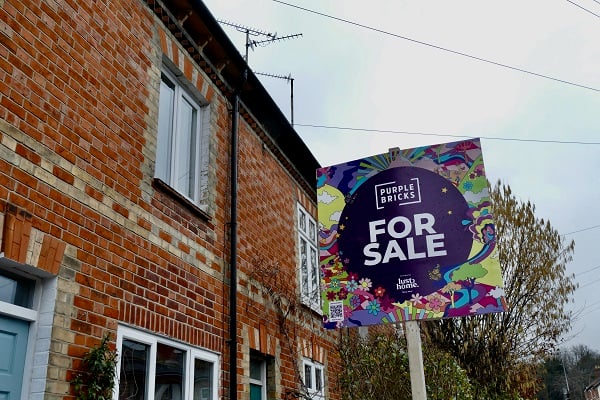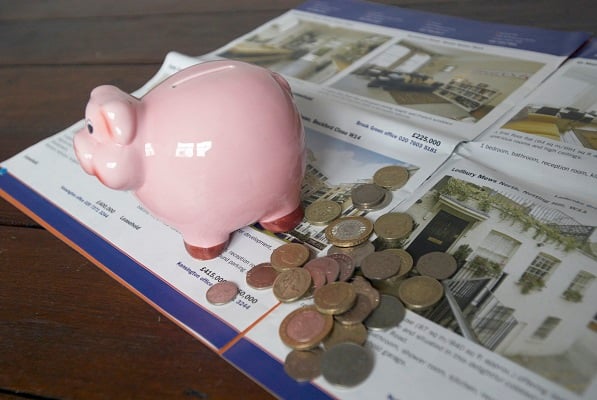The latest market insight from quick sale specialists, Open Property Group, reveals the six most common reasons that a chain breaks when you’re trying to sell a property.
When you’re trying to sell a home, the success of the transaction often depends on the success of other transactions. This is called a chain.
For example, if you’re selling a home and accept an offer from a buyer, it’s common that the buyer first needs to complete the sale of their current home in order to fund the purchase of yours. If the arranged sale of their current home falls through, it means they can no longer purchase your property as planned causing your sale to also fall through.
In other words, the chain is broken. And once a chain is broken, it can scupper any number of transactions that are linked to it in a cruel domino effect of fall through.
To help more sellers avoid the dreaded chain break, Open Property Group has created a vital list of the six most common factors that cause a break in the hope that this knowledge will help more sellers avoid the worst case scenario.
A change of heart
Under England’s laws, an offer to purchase a home is not legally binding until contracts have been exchanged, a moment that only occurs at the end of a lengthy transaction process.
This means that a buyer can change their mind at any time before exchange of contracts and simply walk away from the deal.
If you’re part of a long chain, it means you’ve got many buyers and sellers who could at any point change their mind, walk away from their sale and, in doing so break the chain, putting an end to many other sales including your own.
Mortgage and valuation issues
If a buyer fails to fully secure a mortgage on a property they wish to buy, it puts an end to the agreed sale and breaks the chain. Even if the buyer has had a mortgage agreed in principle, there is still no guarantee that their lender will provide a mortgage for the specific property in question. In such a circumstance, the sale falls through and the chain is broken.
A common reason for this is that the mortgage provider disagrees with the valuation of the property, instead deciding it’s worth less than the buyer has agreed to pay. This creates a risk for the lender because, should the buyer fail to pay their mortgage, the lender cannot be sure that they’ll be able to recoup the full amount they have lent by forcing a sale of the property.
Problematic survey results
Once a buyer has an offer accepted, they will commission a survey of the property to ensure it’s in good condition. If the survey results come back with serious issues, such as subsidence or knotweed, the buyer can choose to walk away, thus breaking the chain.
Gazumping
After accepting an offer and until exchange of contracts, a seller is still within their rights to accept another offer should a second buyer come along and offer more money, otherwise known as gazumping. This causes the original buyer to lose out which means they can no longer sell their current home and, thus, the chain is broken.
Gazundering
Gazundering is the opposite of gazumping. It’s when a buyer makes an offer, but later insists on paying a lower price. It’s a legal, albeit fiendish tactic that some buyers use to force the seller into accepting less money because the transaction process is already so far along that they don’t want to see it fall-through. If however, the seller stands strong, it can cause loggerheads which sees the sale collapse.
Disputes and disagreements
Negotiation is a natural part of all property transactions. Buyers will try to pay less because, for example, they believe there are issues with the property that they will be required to spend money on after purchase and therefore believe the price should be lowered.
Most of these disputes will eventually be resoled and the sale will proceed. But if they’re serious issues, it can often cause the sale to fall through and the chain to break.
A change in personal circumstances
Sometimes, a buyer or seller agrees to a transaction but then their lives take a sudden change. It may be a death, a divorce, or work-related issue that suddenly makes them not want to proceed with the sale. Such instances are deeply unfortunate, but unless contracts have been exchanged, there’s nothing to stop them leading to the transaction collapsing and the chain, once again, breaking.
CEO of Open Property Group, Jason Harris-Cohen, said, “Selling a home is incredibly complex. It’s a huge and often life changing financial transaction and is, therefore, riddled with obstacles, disagreements, fall outs, and nerves. So it’s little wonder that so many sales fall through. And because nearly all transactions are linked to chains of varying lengths, one fall through can cause many fall throughs.
If you experience a chain break, it often means you’ve got to return to square one and start all over again either finding another buyer, or finding another home you like enough to make an offer on.
But sometimes, it’s simply not an option for you to start all over again with your sale. Perhaps you’ve got to relocate for a new job and therefore simply don’t have the time. Or perhaps you need the money urgently, or you simply don’t want the stress and strife of having to go back to square one.
That’s where quick sale platforms can provide welcome relief, buying your property quickly and without question for roughly 80-85% of its market value.”






Leave a Comment